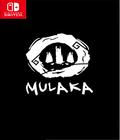Mulaka is many things. It aims to be a spiritual experience and a historical deep dive into the myths and culture of the Tarahumara while trying to be a good action game that ties everything into an appealing package. While the effort that went into making Mulaka has to be commended, the game doesn't pull off what it tries to achieve and lacks polish in several departments, making it a somewhat disappointing journey into the lore of the Native American people of northwestern Mexico.
Before playing Mulaka, I didn't know anything about the Tarahumara, a group of Native American people in Mexico who are excellent long-distance runners and are known to run up to 200 miles in a session. This statement marks Mulaka's greatest achievement: using video games to educate the public about this old civilization. While general terms are introduced here and there, there is more information available about the enemies we face and how they connect to the lore. You won't be able to write an essay on the topic afterward, but Mulaka does an admirable job of introducing the topic in the context of an action game. The game itself, however, doesn't always do the lore justice.
We control a Sukurúame, a Tarahumara shaman, who faces the destruction of the world unless you summon the power of the demigods to save your people. Trailers and gameplay footage make this look like an open-world game, but it's very level-based. Although the levels are designed as an open space, it still plays as a fairly linear experience. We must complete seven stages (eight, if you count the final battle as a separate stage) to reach the demigods and receive their power in the form of new abilities. We push onward until we eventually face the source of the world's corruption.
As a shaman, we're a warrior but also proficient in the use of herbs and spiritual powers, and that defines the general gameplay. We're equipped with a staff and the ability to use light and heavy attacks on our opponents. After getting in a few hits, there is also a special flurry attack that deals heavy damage in the area around us. Additionally, we can throw spears, which is needed to knock enemies out of the air in order to finish them.
In addition to our combat abilities, we can create potions. In due time, we unlock all four of them, each corresponding to a special plant. Once we've collected a certain number of plants, the potion is created automatically. We can use potions to regain health, throw explosive projectiles, go into a berserker mode, and raise a temporary shield against damage. It's an antiquated system, as the plants grow in mixed patches along the way and look like they were copied and pasted into the environment a few times.
Although it looks like more of an exploratory adventure, Mulaka is an action game, and combat is the main gameplay mechanic. Visually, it's decidedly rough around the edges. Animations often look weird, and the light and heavy attack system doesn't offer anything special. It can feel less satisfying than many other games that have a similarly simple approach to combat. The game rectifies this with a variety of enemies, but a few encounters can make you sweat. For some foes, you may need to use a heavy attack to break their shields or dodge in order to attack them from behind. These are hardly new ideas in an action game, but the mixture of enemies that Mulaka throws at you makes combat more intriguing. There are also the potions, which are activated by a brief dance that can be difficult to perform in the midst of combat. Once you get the hang of the combat, it's a fairly easy ride because there isn't a difficulty setting in the game .
Our protagonist also has an ability that allows him to see invisible objects, or rather, into another realm. Some enemies may be permanently invisible, while others can go to the other realm to vanish and attack you. Activating the special sight will reveal those enemies and every enemy's health bar. It also alerts us to nearby points of interests, like hidden stashes of Korima, the in-game currency for character development. Unfortunately, it has the side effect of decreasing the sub-par exploration aspect of the game and making it tough to follow due to the confusing layout.
There are also a few set piece boss battles that are quite impressive in scale. However, almost all of them are easy to defeat, making it a bittersweet affair. They look and play well, but they lack punch. They are also one of the few things that break the repetitive gameplay loop.
Upon entering a level, we're usually tasked with collecting three stones that unlock a door to a boss battle, and some may reveal the statue of a demigod. In order to collect the three stones, we have to battle various creatures and explore the map. Unfortunately, there isn't much variety to the location of these stones, as the retrieval process is often very similar. We either have to battle rounds of creatures to collect the stones, or they're hidden in a dried-up well that we have to reconnect to water by solving the same kind of puzzles that get trickier with each stage.
Of course, reaching these areas varies with the availability of new skills granted by the demigods and potions. Those abilities allow us to glide like a bird, break certain stone and ice structures as a bear, automatically jump up certain structures as a panther, and freeze certain objects and swim through the water as a snake. All these abilities deplete magic, so we can only use them for so long until we run out or have to collect a pick-up to replenish our magic meter.
The abilities never get truly creative. We may glide through an increasingly complex web of airstreams and have to alternate the panther moves with the gliding, but it never feels as awesome as it sounds. Shapeshifting into a panther is supposed to be awesome, but it's mostly a jagged animation of a panther jumping a few platforms to reach a higher spot. It's not horribly bad, but it feels like a missed opportunity and never looks as cool as it should be. It also never challenges you to smartly combine the things that you've learned throughout the game. Similar to combat, you gain new abilities, but there is no learning process. Even with your expanded move set, you don't feel like you evolve during the game because it never adequately challenges you.
Throughout our journey, we collect Korima, which we can use to level up our character's skill tree. It consists of three branches with seven abilities in all, and it grants us more health, faster-replenishing magic, and better spear throwing. However, the system is unbalanced, as you can collect a huge amount Korima early on if you hunt down all hidden objects in the world. This means you're maxed out well before you reach the end with plenty of spare Korima — almost enough to max it out a second time.
Every stage in Mulaka has a variety of objects to find, some of which are artifacts with information about their relationship to the culture, as well as spirits of the dead that we need to send on to the afterlife. The latter is only discovered by using our special sight ability. It's here where the game is closest to an exploration-based experience, and many objects are hidden behind barriers that we can only overcome with abilities that are granted later in the game. However, the incentives for doing so, apart from additional information and a 100% marker next to the stage, are minimal.
Let's move on to the technical aspects of the game, which looked fine in an artsy way from the get-go. The look is rough. I'm fully aware that we're talking about an indie project, but that doesn't change the fact that Mulaka can look pretty good on some occasions but also looks pretty ugly the rest of the time. It sometimes changes based on the viewing angle, and that's where the low-poly look does it a huge disservice. Sometimes it looks like it's barely above PS1-era action games. That's not necessarily a bad thing, but coupled with several weird or poor animations, the title doesn't look that good. The game also has a sometimes-unstable frame rate and short freezes mid-game on the Nintendo Switch. They don't break the game, but they're noticeable.
There are levels, enemies and bosses that look stunning, but those are rare instances that fade away when you look at the disfigured face of a no-name villager in a desert that looks boring and uneventful.
Mulaka rests somewhere in the middle between a horrible game and a great game. It justifies its existence mainly with the topic it tackles and how it tells it. Unfortunately, the rest feels like the B-movie equivalent of a video game that lacks resources, thus creating a game that has great promise but falls short in many ways. There will certainly be people who enjoy Mulaka, but most others would rather push through it once to mark it as complete and then not remember it at all. This is a shame, because I really wanted to like Mulaka and its mission to educate and entertain. If you want to give it a try, there are about 7 hours of gameplay (if you search for collectibles) behind the $20 price tag. It was never engaging enough that I'd pick it up again after completion or even recommend it to a friend.
All in all, Mulaka takes a risk that doesn't pay off. The story and goal of the game are intriguing, but the gameplay and visuals just aren't there. It certainly does things right and will appeal to a few people, but the overall rough approach is noticeable in every aspect and holds it back.
Score: 5.7/10
More articles about Mulaka











 Mulaka is a 3D action-adventure game based on the Tarahumara indigenous culture that explores the lore of these legendary people!
Mulaka is a 3D action-adventure game based on the Tarahumara indigenous culture that explores the lore of these legendary people!













